Society 5.0: Embracing A Human-Centered Haven
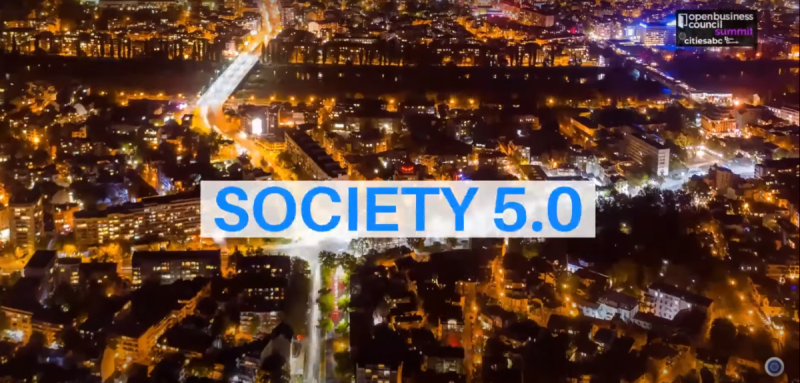
Categories :
Society 5.0 is a human-centered society that balances economic and technological advancement to solve society's problems with super-smart AI data systems. It represents a new vision for a smarter society where humans, nature and technology create a sustainable balance enhanced by data.
The concept of Society 5.0 was first proposed in the 5th Science and Technology Basic Plan by the Japanese government as a future society that Japan should aspire to. It follows the hunting society (Society 1.0), agricultural society (Society 2.0), industrial society (Society 3.0), and information society (Society 4.0).
As it was stated by Professor Harayama Yuko, Professor Emeritus at Tohoku University and current member of the Board of Directors of the Elsevier Foundation, ORCID and a member of the Scientific Steering Committee for the French National Research Agency (ANR Society):
“Society 5.0 is an initiative merging the physical space (real world) and cyberspace by leveraging ICT to its fullest, where we are proposing an ideal form of our future society: a ‘super smart society’ (...) We consider this as a concept to be developed alongside citizens."
With Society 5.0, digitisation is a means, but we humans must remain central actors. Traditionally, innovation driven by technology has been responsible for social development, but in the future, we will reverse our way of thinking, focusing on how to build a society that makes us happy and provides a sense of worth. That is why we focus on the word “society” as the foundation for human life.
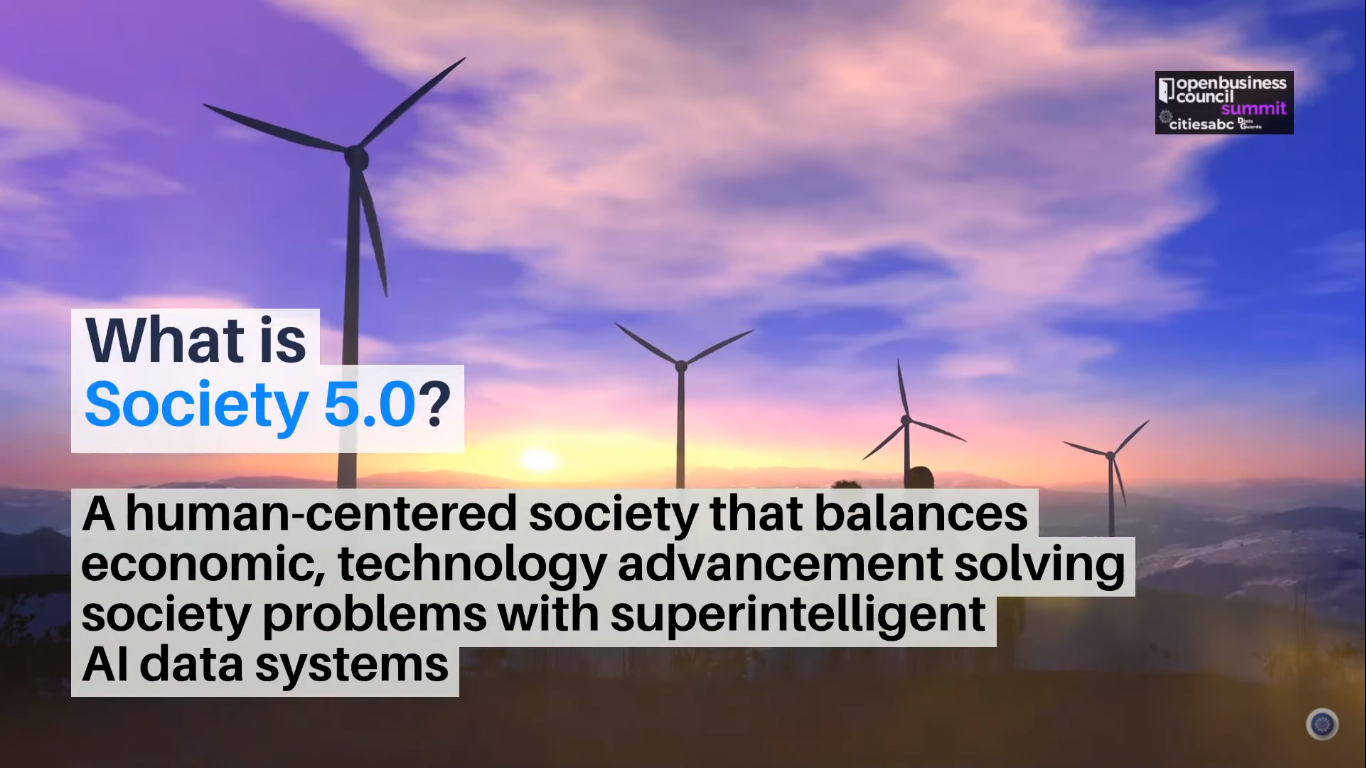
What is Society 5.0?
As Professor Harayama Yuko said:
"Society 5.0 aims to resolve various modern social challenges by incorporating game-changing innovations such as the Internet of things (IoT), robotics, AI and big data into all industries and social activities. Rather than a future controlled and monitored by AI and robots, technology is harnessed to achieve a human-centred society in which each and every person can lead an active and enjoyable life. Within the context of ever-growing digitalization and connectivity and expanding use of Artificial Intelligence (AI) technologies, several actions have been initiated under this flagship concept by the Japanese government as well as by the private sector."
Watch the video below to know more about Society 5.0, created by Dinis Guarda:
What makes Society 5.0 different?
Having tech, nature and society systems operating in balance scope we can keep a building efficient, supplying energy to a smart city, ensuring that all services provided by that city are efficient and available. That is achieved thanks to a high degree of convergence between cyberspace (virtual space) and physical space (real space). In Society 5.0, a huge amount of information from sensors in physical space is accumulated in cyberspace. In cyberspace, this big data is analysed by artificial intelligence (AI), and the analysis results are fed back to humans in physical space in various forms.
How Society 5.0 works?
In the past information society, the common practice was to collect information via the network and have it analysed by humans. In Society 5.0, however, people, things, and systems are all connected in cyberspace and optimal results obtained by AI exceeding the capabilities of humans are fed back to physical space. This process brings new value to industry and society in ways not previously possible.
Society Evolution: Achieving Society 5.0
We have gone through 5 society evolutions in human history:
SOCIETY 1.0 Cognitive + agriculture revolution.
Population 0-5-770 million Circa 115,000, early humans until 30,000 Homo Sapiens and after 10,000 years ago. Discover of fire, limited production, subsistence. Trade, social contract, Community, emergence state first models, First war empires. Money, jewelry, clothes. Religion, Nomadic tribes. Adapt nature. Small life span. 1215 Inception of Magna Carta as the first civic law and society constitution
SOCIETY 2.0 Circa 1760 - 1950’s first industrial revolution.
It was characterised by steam, electricity urbanisation, chemical agriculture, printing press, property ownership, centralised production, advertising, capitalism, socialism, healthcare, radio wave radiation, ego-system. Energy, free-market, accelerated nature change. Population: 2.5 billion. Regarding lifestyle principles, the life span augments from 30 to 60 years old.
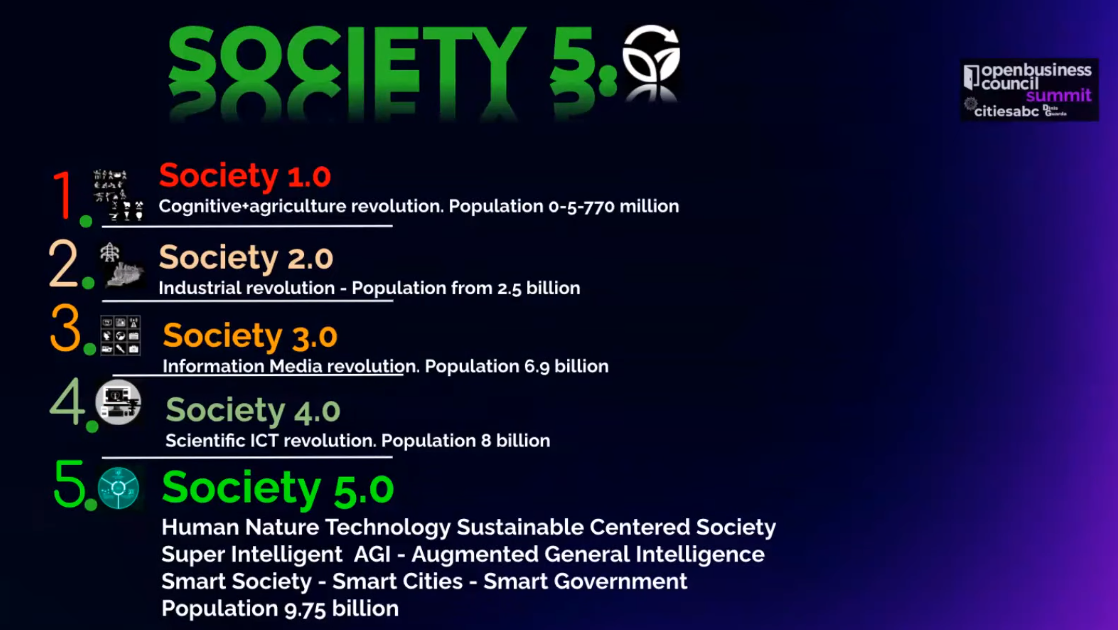 SOCIETY 3.0 Circa 1950-1990. The industrial society.
SOCIETY 3.0 Circa 1950-1990. The industrial society.
We see a rise in human genome, TV, media broadcast, digitisation, internet, social media. It was the time of the Cold War, globalisation, space race, organic agriculture, big data, enterprise scale, complex hierarchy, stakeholder, uniform code, swarm awareness, mechanic to electronic, social market, NGOs, pollution, climate change issues and awareness. The world population soared to 6.9 billion and life extends to 80 years old.
SOCIETY 4.0 Circa 1950-1990-2020. The information society. This is the most recent society structure, dominated by tech exponential growth, permanent revolution, collective wisdom of Crowds - Internet App economy. This is a society highly influenced by tech innovation with frontier emergent technologies like Blockchain, IoT, AI, ML, robotics, quantum computing, etc. It is the time of great shifts like regenerative law, decentralisation, social impact, P2P digital systems, creative models, fake news, dystopian social unrest. UN SGD parallel w/ social psychometric. The world population rose to 8 billion people and there is an increase percentage number of people with 100+ years old.
SOCIETY 5.0 After 2020. The human-centered society.
A way by which to guide and mobilise action in science, technology and innovation (STI) to achieve a prosperous, sustainable, and inclusive future. It is dominated by Super Intelligence / Human Center Nature Conscience / AI Singularity / UN SDG smart society / AGI, Open Distributed APIs. It is characterised by a SUPERINTELLIGENT SOCIETY, a Redefinition of human machine identity - new evolution genetic neuroscience. Climate change - circular economy and new green economy. The world population is expected to reach 9.75 billion people.
The concept of society 5.0 is a vision of a human nature and tech sustainable society where humans, nature and technology find a circular economy of balance in super intelligent digital transformation - smart society.
"A major turning point in the history of humankind."
The initial concept of society 5.0 was announced to the world by former Japanese Prime Minister Shinzo Abe in a famous speech entitled “Hannover Declaration” delivered at the CeBIT 2017 in Hannover, Germany. Society 5.0 concept was developed in Japan’s 5th Science and Technology Basic Plan by the Council for Science, Technology and Innovation.
Former Japanese Prime Minister Shinzo Abe said back then:
"A major turning point in the history of humankind has arrived.
In prehistoric days, we ventured into the forest to hunt. If that is the first chapter of human history, then the second is when we succeeded in securing a stable number of food calories in the form of rice and wheat.
The curtain rose on chapter three as waves of industrialization arrived in what we call modern times; chapter four saw telecommunications and computers fuse, opening a new door.
We are now witnessing the opening of the fifth chapter, when we are able to find solutions to problems we had been unable to solve. This age in which all things are connected and all technologies fuse is the advent of “Society 5.0”."
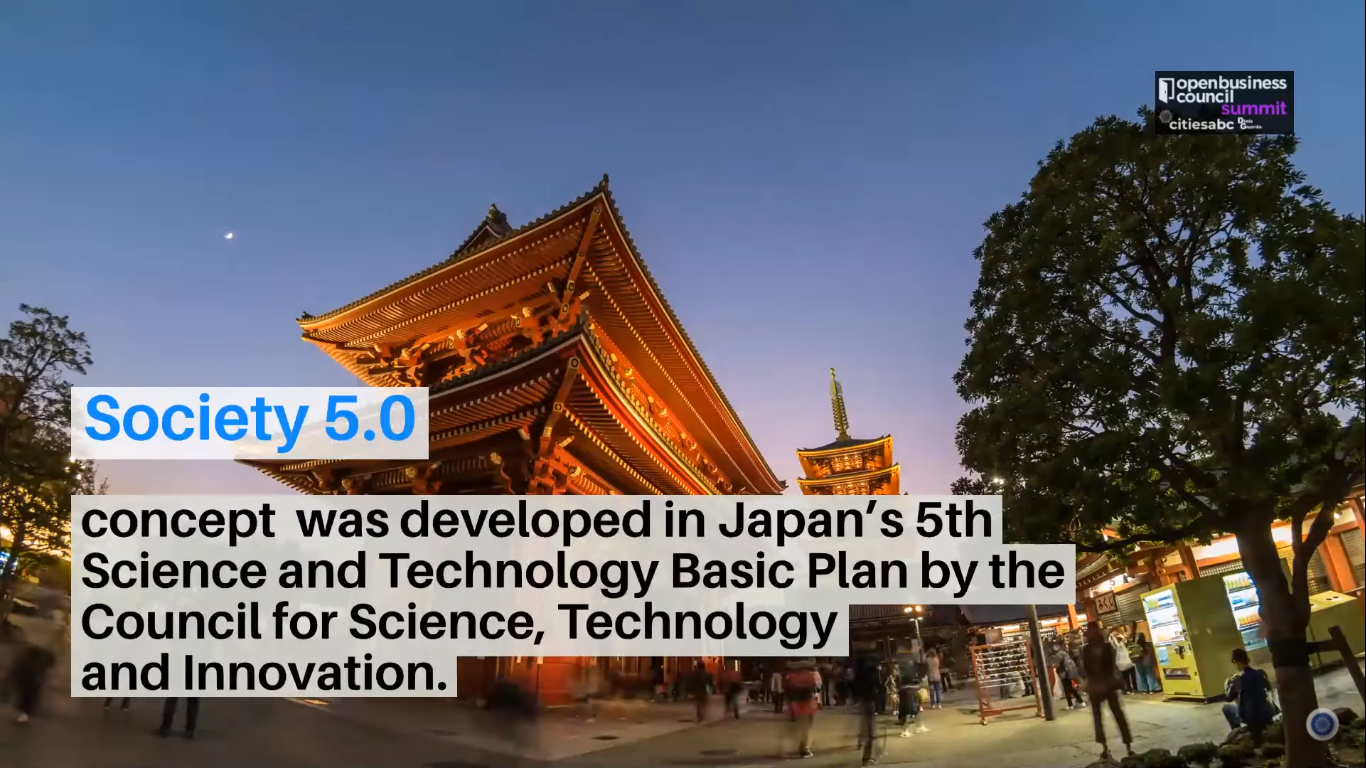
As the economy grows, life is becoming prosperous and convenient, the demand for energy and foodstuffs is increasing, lifespan is becoming longer, and the aging society is advancing. In addition, the globalisation of the economy is progressing, international competition is becoming increasingly severe, and problems such as the concentration of wealth and regional inequality are growing. Social problems that must be solved in opposition (as a tradeoff) to such economic development have become increasingly complex.
Likewise, the exponential disruptive technologies of our time can create dystopia or utopia. They will be part of the biggest evolutionary acceleration that will shift humanity more in the next 50 years than in all the different stages of human history and evolution. Even with our basic forms of narrow AI we are already seeing the biggest disruption of human society with manipulation of entire societies with social media, fake news and dark data. However, the biggest challenges are yet to arrive. They will come in the form of health genetic modification - bioengineering and social AI engineering.
Here, a variety of measures have become necessary such as the reduction of greenhouse gas (GHG) emissions, increased production and reduced loss of foodstuffs, mitigation of costs associated with the aging society, support of sustainable industrialisation, redistribution of wealth, and correction of regional inequality, but achieving both economic development and solutions to social problems at the same time has proven to be difficult in the present social system.
A Human Centered Society
In Society 5.0, new value created through innovation will eliminate regional, age, gender, and language gaps and enable the provision of products and services finely tailored to diverse individual needs and latent needs. In this way, it will be possible to achieve a society that can both promote economic development and find solutions to social problems.
Society 5.0 is about augmenting humanity with super intelligence & constant conversation between the best of academic research, science a new dawn of evolution, powered by tech innovation, & all agents in society.
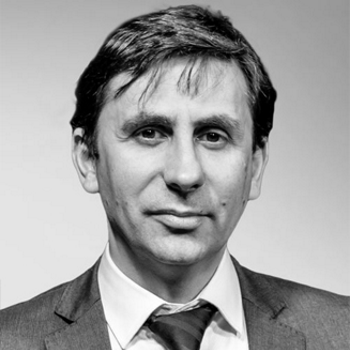
Dinis Guarda is the founder and chief vision architect for citiesabc.com and CEOCreatorAuthor of freedomxcom. He has before created the platforms openbusinesscouncil.org, fashionabc.org, intelligenthq.com, hedgethink.com, tradersdna.com and and IP technologies blocksdna.com, lifesdna.com, iDNA and indexDNA.
With 20+ years experience in international business and digital transformation Dinis Guarda has been a Lecturer and guest Speaker in international business schools such as: Cambridge, Kings College, Copenhagen Business School, INSEEC, Monaco University among others. Dinis is the author of various books. His upcoming book, titled 4IR Magna Carta Cities ABC: A tech AI blockchain 4IR Smart Cities Data Research Charter of Liberties for our humanity is due to be published in 2020. Before that, he has published “4IR AI Blockchain Fintech IoT Reinventing a Nation“, “How Businesses and Governments can Prosper with Fintech, Blockchain and AI?”, also “Blockchain, AI and Crypto Economics – The Next Tsunami?” among others. He was responsbile for over 20 books/ebooks/magazines published in various languages.
Dinis is a serial entrepreneur and CEO / chairman of the companies ztudium / techabc / open business platform. Dinis is involved as a strategist, board member and advisor with the payments, lifestyle, blockchain reward community app Glance technologies, for whom he built the blockchain messaging / payment / loyalty software Blockimpact, the seminal Hyperloop Transportations project, Kora, and blockchain cybersecurity Privus.
He is listed in various global fintech, blockchain, AI, social media industry top lists as an influencer in position top 10/20 within 100 rankings: such as Top People In Blockchain | Cointelegraph and https://cryptoweekly.co/100/ .
Between 2014 and 2015 he was involved in creating a fabbanking.com a digital bank between Asia and Africa as Chief Commercial Officer and Marketing Officer responsible for all legal, tech and business development. Between 2009 and 2010 he was the founder of one of the world first fintech, social trading platforms tradingfloor.com for Saxo Bank. More about him here https://www.openbusinesscouncil.org/wiki/dinis-guarda/










